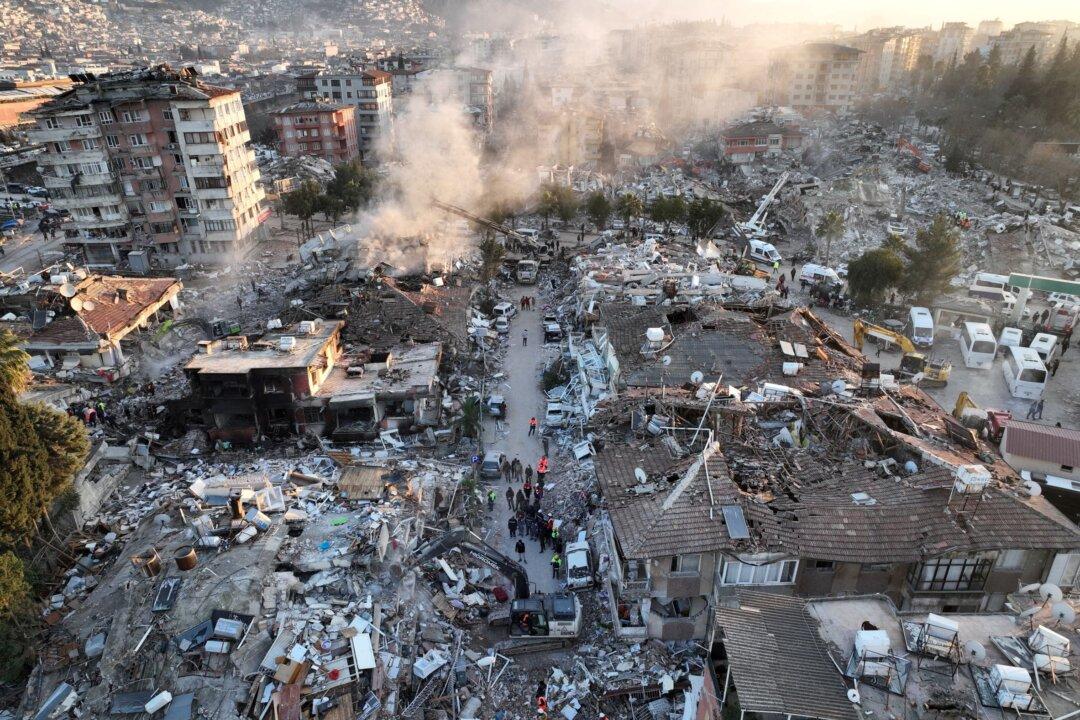HAREM/JANDARIS, Syria—Turkey said it would demolish buildings heavily damaged by a huge earthquake last week and swiftly start a mammoth reconstruction effort, with thousands of families struggling to survive amid the rubble and freezing conditions.
Rescuers, who flew in to save people trapped in the debris, were starting to pack, although one woman was pulled out of a collapsed building on Wednesday after being buried for 222 hours.





